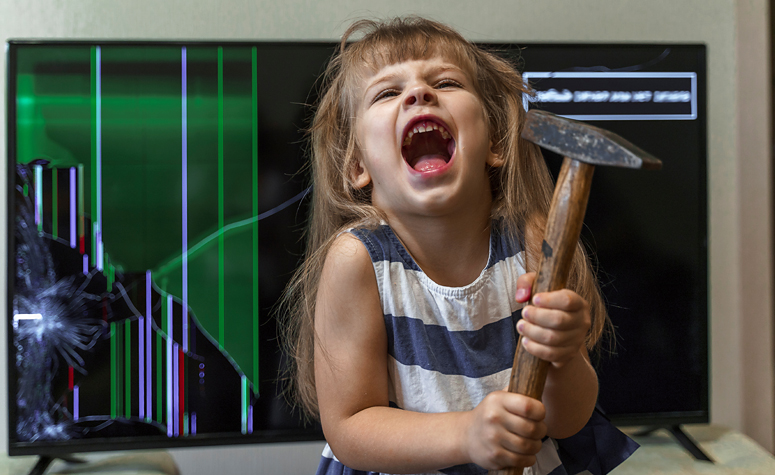Understanding and Treating Conduct Disorder
Generally diagnosed in childhood or early adolescence, conduct disorder manifests as aggression and disruptive, impulsive behavioural patterns. Individuals with this type of disorder typically have no regard for rules. Additionally, they are indifferent to the consequences and implications that their behaviour has on the people in their lives.
In the vast majority of cases, untreated conduct disorder worsens as the individual progresses into adulthood. For this reason, treatment for conduct disorder at one of our specialist treatment centres is centred around early detection, which helps the child’s family circumvent problematic behaviours in the future.
At our centres, conduct disorder is treated using a combination of family and behavioural therapeutic methods. All of our patients undergo an in-depth initial assessment, which helps our experts create a custom treatment plan tailored to the patient’s needs, all with the aim of ensuring positive and productive outcomes.
Furthermore, we ensure complete flexibility for our patients, allowing them to undergo treatment at a facility of their or their family’s choosing. Regardless of the severity of the condition, the treatment objective remains the same, helping to rectify and improve the child’s behaviours at school and in other social settings, while also aiding parents in effectively communicating with their child at home.

Types of Conduct Disorder
Generally, the term conduct disorder refers to a range of concerning or potentially problematic behaviours and emotions exhibited by children. Specialists recognise two types of the disorder based on the age at which it is diagnosed:
- Childhood conduct disorder
Diagnosed when the children exhibit symptoms before the age of 10. - Adolescent conduct disorder
Diagnosed when the symptoms first appear in adolescence.
What are the Signs and Symptoms of Conduct Disorder
Conduct disorder symptoms usually vary based on the child’s age and the severity of the condition. The most common examples include:
Aggressive behaviour
In younger children, this symptom typically manifests in pushing, biting, and hitting those around them. Conversely, adolescents often bully their peers, harm animals, and initiate fights. In some instances, they may even engage in criminal activities.
Destructive behaviour
This symptom includes the intentional destruction or ruination of another person’s property. Many engage in arson and vandalism, while others physically destroy different objects within their homes.
Deceitful behaviour
Being untruthful is more common in adolescents and teenagers, and it may also involve stealing from people after gaining their confidence.
Breaking rules and orders
Typically, children and teenagers with conduct disorder also purposefully break rules set by figures or institutions of authority. Examples include skipping classes, pulling pranks, or engaging in age-inappropriate behaviours.
In most instances, breaking the rules helps these individuals feel more in control and gives them a sense of accomplishment and gratification. Additionally, aggression and dishonesty are often present, commonly used as a means of gaining power over others.

What Causes Conduct Disorder?
At present, the precise causes of conduct disorder are unclear. However, most experts agree that a combination of genetic, biological, environmental, and social factors may predispose certain children to the condition.
At our treatment facilities, an initial assessment might help establish whether the disorder is rooted in behaviours acquired in an abusive environment, or if negative behaviours are motivated by a sense of gratification.
Below, are some of the possible factors that might contribute to conduct disorder.
Genetic
A significant number of children with conduct disorder have family members who have been diagnosed with certain mental health conditions. These include anxiety, personality disorders, and substance abuse. Thus, it can be inferred that the predisposition for the disorder may be partly genetic.
Biological
Some experts believe that injuries to the areas of the brain responsible for emotion and impulse regulation may cause conduct disorder. Additionally, conduct disorder has repeatedly been linked to mental health issues, including ADHD, anxiety, and depression, all of which may escalate and aggravate the child’s symptoms.
Environmental
Another factor that might facilitate the development of conduct disorder is an abusive and volatile home environment. In addition, being exposed to substance abuse and suffering traumatic experiences at a young age may also be contributing factors.
Social
Lastly, social factors can also aid the development of conduct disorder. These include the family’s low socioeconomic status, the child’s poor academic performance, as well as frequent bullying at school.

Does My Child Have Conduct Disorder?
Conduct disorder can be challenging to detect, as many teachers and parents might take note of the warning signs without recognising their severity. Teenagers with conduct disorder often display extreme confidence in public, although they typically struggle with deeply-rooted insecurities. In many instances, the affected teenagers may act out in response to perceived hostility from their peers or authority figures.
On the other hand, young children may start exhibiting symptoms of conduct disorder as soon as they are capable. For instance, they may often bite, push, and hit, particularly targeting other children. As the child matures, these behaviours may evolve into bullying, harming defenceless animals, initiating physical altercations, and even engaging in vandalism and theft.

Sometimes the smallest step in the right direction
ends up being the biggest step of your life
Tiptoe if you must, but take the step

Treatment for Conduct Disorder
The type and frequency of conduct disorder treatment are based solely on the patient’s age and the severity of their symptoms.
Initially, all individuals undergo a thorough assessment at one of our treatment centres, which allows our specialists to create a treatment plan tailored to each patient’s needs. For younger children, this treatment strategy may involve individual and family therapy, aimed at better managing the condition at home.
Conversely, therapeutic methods for teenagers may be more focused on peer relationships and interactions with adult authority figures in social settings. The goal of both approaches is to minimise aggressiveness in interactions with others, thus boosting the child’s confidence and self-esteem.
It is important to note that changing the child’s thought and behavioural patterns typically requires a significant amount of time and effort. However, initiating treatment early can improve the symptoms and prevent the progression of the condition in subsequent years.
In addition to professional treatment, establishing a stable and supportive environment at home is essential for recovery. Namely, this can promote positive and productive behaviours and aid in rebuilding healthy familial and peer relationships.
Conduct disorder treatment may involve a wide range of talk-based therapy methods, subject to individual requirements including:
Cognitive behavioural therapy (CBT)
CBT is particularly effective for children who struggle with mood swings and managing their thoughts effectively. Founded on a problem-solving technique, this therapeutic method aims to reprogramme the way the child copes with their anger, impulsiveness, and other negative emotions.
- Family therapy
The main goal of family therapy is to aid parents in improving their communication with their child following a conduct disorder diagnosis. It achieves this by helping parents understand their child’s needs and by creating and nurturing a supportive environment for them. Through these steps, parents can reduce the effects of the condition, and help their child develop more productive coping mechanisms.
- Psychotherapy
Psychotherapy can help children learn to control and express their anger in more positive and appropriate ways. To achieve this, they are taught self-care and the importance of effectively processing their emotions. Throughout the sessions, an experienced therapist works with the children, encouraging them to explore alternative ways of coping with negative feelings.
Generally, conduct disorder is not treated with medication. However, exceptions may be made in cases where the symptoms are severe. Additionally, physicians might prescribe medication if the disorder co-occurs with another mental health condition, such as depression or ADHD.
FREE Conduct Disorder Assessment
If your or a loved one are struggling with conduct disorder, we understand the challenges you’re facing and we’re here to offer compassionate help.
Our highly trained advisers are available to speak to you right away, simply call 0808 252 3379 today.
We can discuss your concerns in complete confidence, explore the options for treatment, and help you to understand what will work best for you.
We’ll also help you to book your free conduct disorder assessment there and then, with appointments usually available within only a few days.
We understand that taking the first step can be the most difficult, but we’re here to support – with no pressure or judgement.
Professional and compassionate help is just a phone call or click away.




